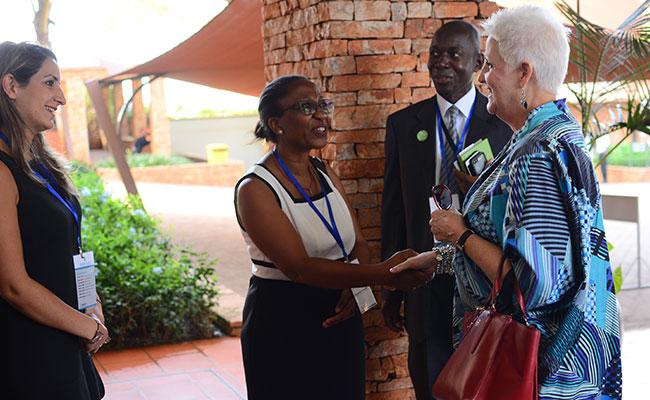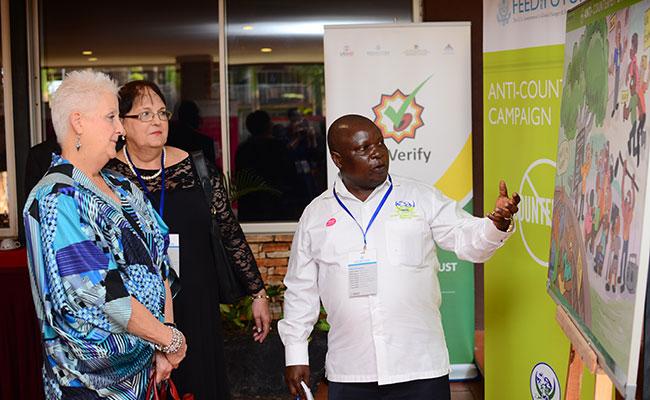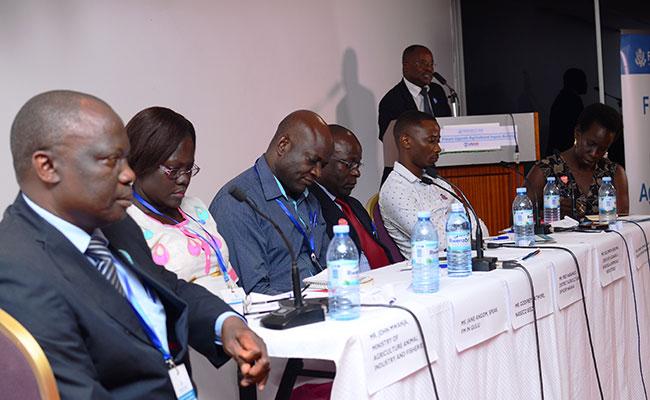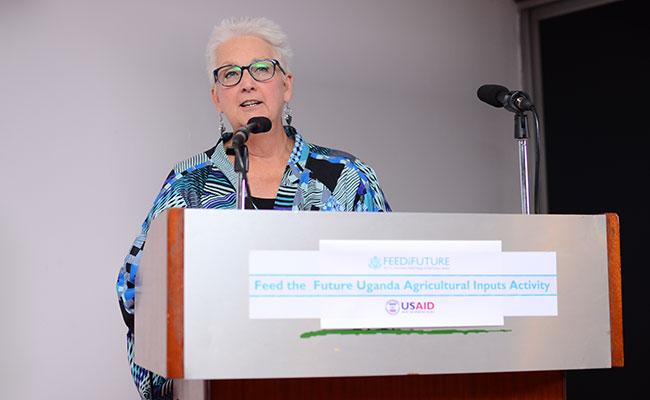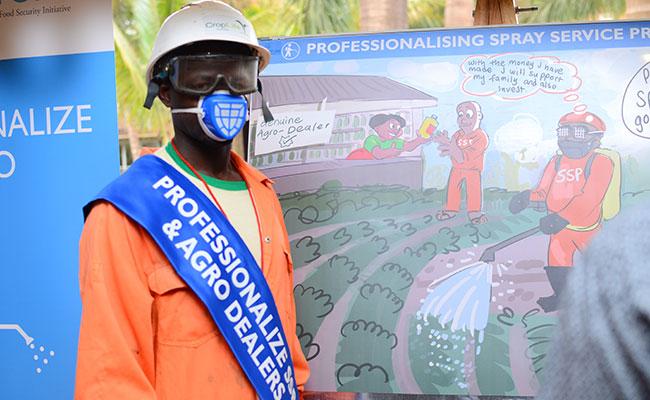Tetra Tech Celebrates Achievements at Uganda Learning Event
Honoring results and successes from the U.S. Agency for International Developments’ Feed the Future Uganda Agricultural Inputs Activity
Tetra Tech celebrated five years of achievements by the Feed the Future Uganda Agricultural Inputs (Ag Inputs) Activity, funded by the U.S. Agency for International Development (USAID), at the Activity’s Close-out Learning Event in Kampala, Uganda, in September 2017.
The Activity worked to increase farmers’ use of high-quality agricultural inputs and decrease the prevalence of counterfeit inputs in Uganda. Tetra Tech used an innovative market systems facilitation approach, leveraging market forces and local partnerships, to change behaviors and facilitate adoption of new customer-oriented business practices and service-based strategies targeting smallholder farmers. An important aspect of the market facilitation approach for sustainability was to empower district level governments and build their capacity to regulate agricultural inputs and agro dealer compliance. To change farmers’ behaviors and attitudes regarding inputs, the Activity used behavior change communication through print media; promotional field days; radio and TV dramas; and music, dance, and drama competitions, particularly targeting women and youth.
The close-out event’s 135 participants included officials from USAID, the U.S. Embassy in Uganda, the Government of Uganda, industry associations, private sector partners, other donors, and development partners. Speakers and participants highlighted results, reviewed lessons learned, and discussed action plans for sustainability.
In her opening remarks, U.S. Ambassador to Uganda Deborah R. Malac stated that a partnership between the government and the private sector is vital to carrying on the Activity’s impact on the Ugandan agricultural sector.
“Overall, this Activity’s achievements have sparked systemic changes that promise to have ripple effects across the entire agricultural economy,” said Ambassador Malac. “And it’s our hope that these changes will help catapult Uganda’s economy to the next level. The investments the U.S. has made through USAID’s Feed the Future Uganda Agricultural Inputs Activity and other related activities demonstrate that belief.”
Tetra Tech’s Rita Laker Ojok, the Activity’s Chief of Party, shared the story of how a mid-term strategic shift resulted from implementation of Tetra Tech’s Collaborate, Learn, Adapt (CLA) framework approach. Using the CLA framework led to a focus on compliance in the fight against counterfeit inputs and reorganization of interventions into eight thematic areas, with resulting changes in approach. To help event participants understand the thematic areas, Tetra Tech organized an interactive exhibition that showcased collaborating partners from each area: Access to Finance, Anti-Counterfeit, Compliance, Climate Change, Distribution, E-Verification, Professionalization of Spray Service Providers, and Seed Quality.
A panel discussion and audience conversation highlighted partners’ experiences with the Activity and thoughts on continuing priorities for the agricultural inputs sector. Panelists included representatives from the Ugandan Ministry of Agriculture, Animal Industry, and Fisheries (MAAIF); district-level government; an agro input retailer; a radio station; an industry association; a seed producer; and a plant protection organization. The panelists and other stakeholders emphasized their commitment to continuing to fight against counterfeit products and to supporting quality assurance programs, such as the Activity’s e-verification initiative for plant protection products and seeds.
MMAIF’s John Mwanja discussed how the ministry is using e-verification to fight against counterfeit items. “As we wait for the counterfeit law, there are already laws in place which mandate MAAIF to manage the agricultural inputs in the country,” he said. “We have arrested people [for selling counterfeit inputs] and have taken them to court. We have done it in Masaka, Mubendi, Kampala, and other places. Very soon, you are going to see us because plans are in place.”
USAID strongly supported the Activity’s market facilitation and sustainability approach, which encouraged local stakeholders like the panelists to take ownership of activities. “One of the most successful aspects of this Activity is the sustainability component, and how different stakeholders are willing to take on the achievements and try to pursue the challenges ahead, even with the project’s closure,” said Dr. Simon Byabagambi, the Activity’s USAID Contracting Officer Representative. “It is now up to the Ugandans on how they want to move forward and use the good that Tetra Tech has put into place through this Activity.”
In five years, the Activity reached more than 47,000 people directly, with additional millions reached indirectly through radio and television campaigns to expand public awareness of the dangers of counterfeit and adulterated inputs and the benefits of buying verified products. The Activity collaborated with 162 public and private partners and 1,291 district-level agro dealers (34 percent women and 16 percent youth) in 25 Feed the Future focus districts and 10 adjacent market hubs, reaching approximately 32 percent of all districts in Uganda, to improve farmers’ livelihoods.
Survey and focus group results show that Ugandan farmers are better prepared to select and use quality inputs and incorporate climate-smart agricultural practices; district-level governments are more empowered to lead industry compliance; and commercial relationships are stronger throughout the agricultural inputs supply chain. Important tasks remaining include the full decentralization of agro dealer registration and the formal accreditation of AgVerify, the private seed certification scheme.
The Close-out Learning Event in Kampala was a heartfelt recognition of the Ag Inputs Activity’s impact, which reinforced the U.S. government’s commitment to investments in Uganda’s agricultural sector. As Ambassador Malac emphasized in her statement, investments in systemic change in partnership with the Government of Uganda can transform the agricultural sector, leading to greater economic opportunity and improved livelihoods for Ugandan men, women, and youth.
Learn more about Ag Inputs:

